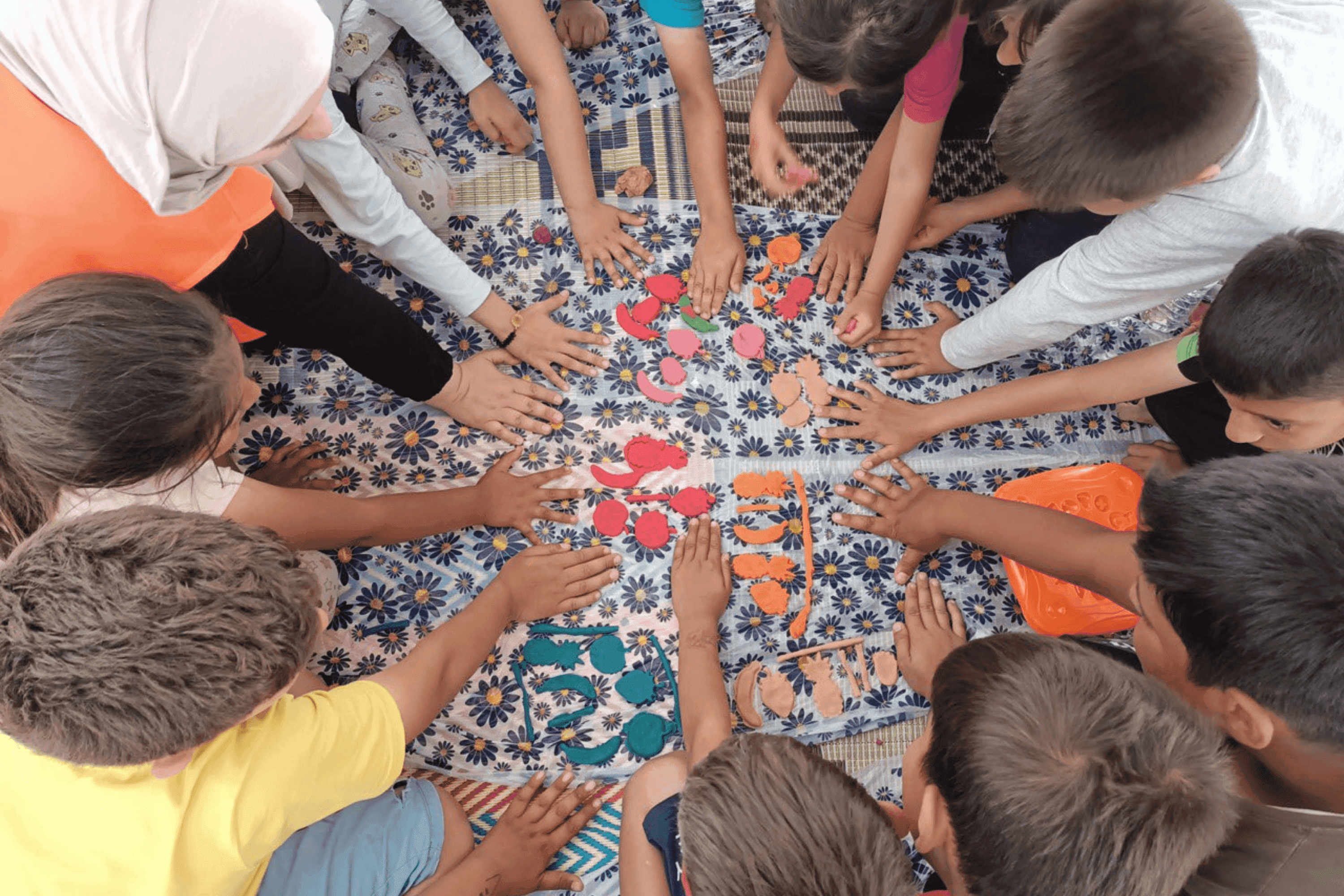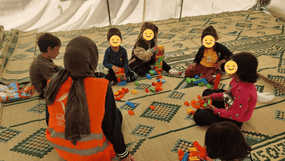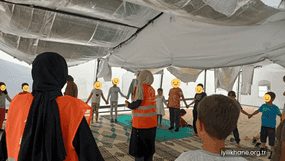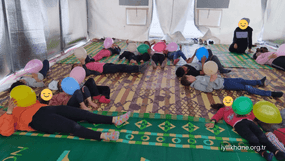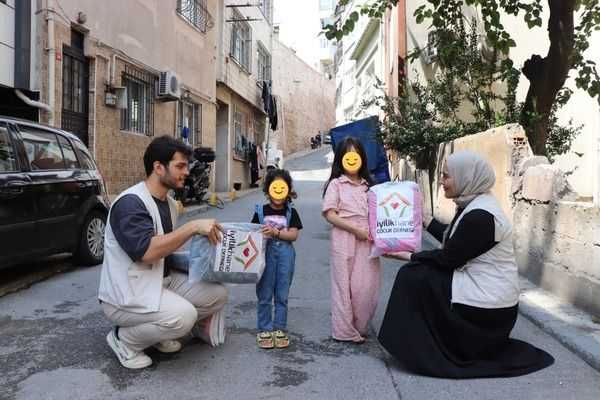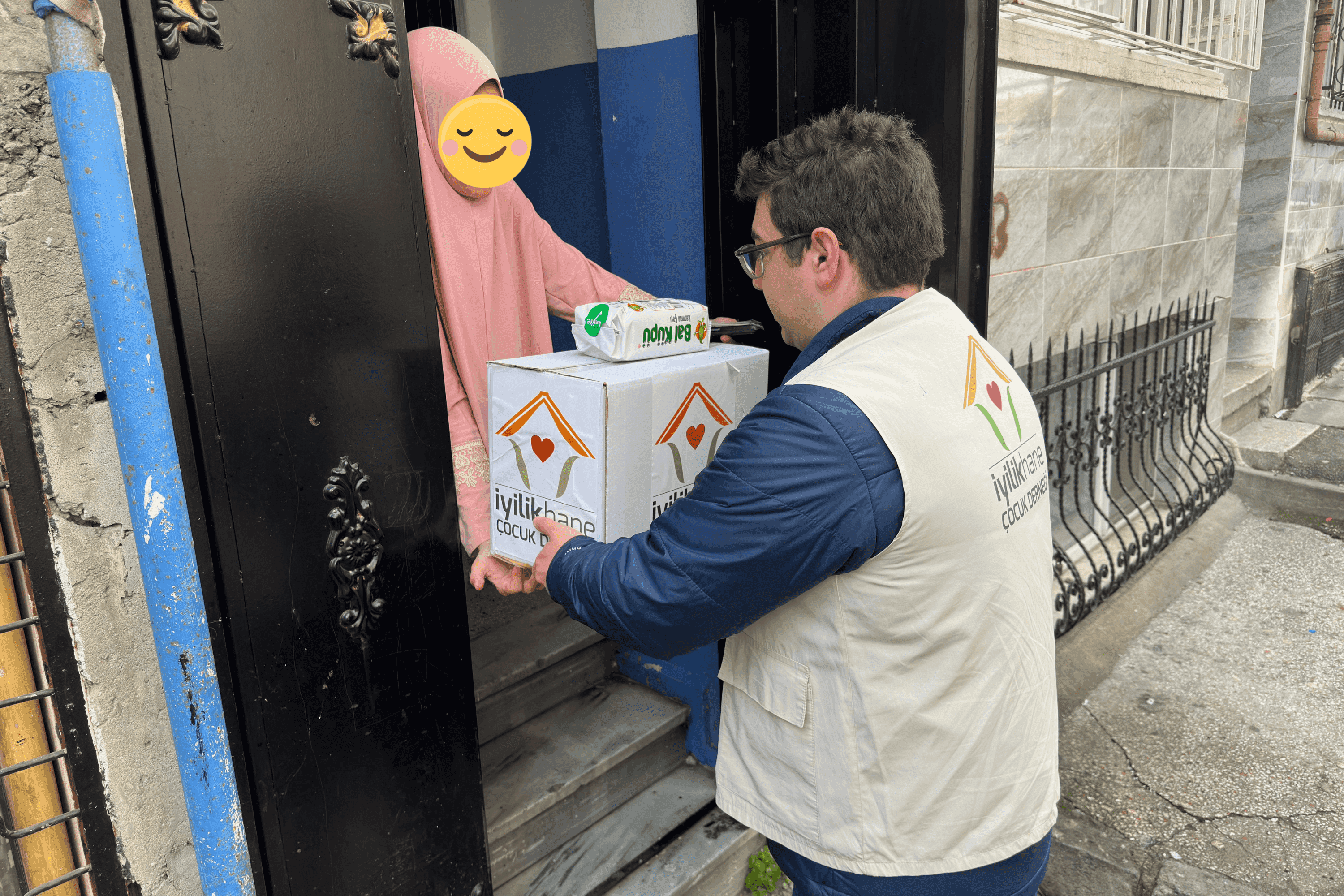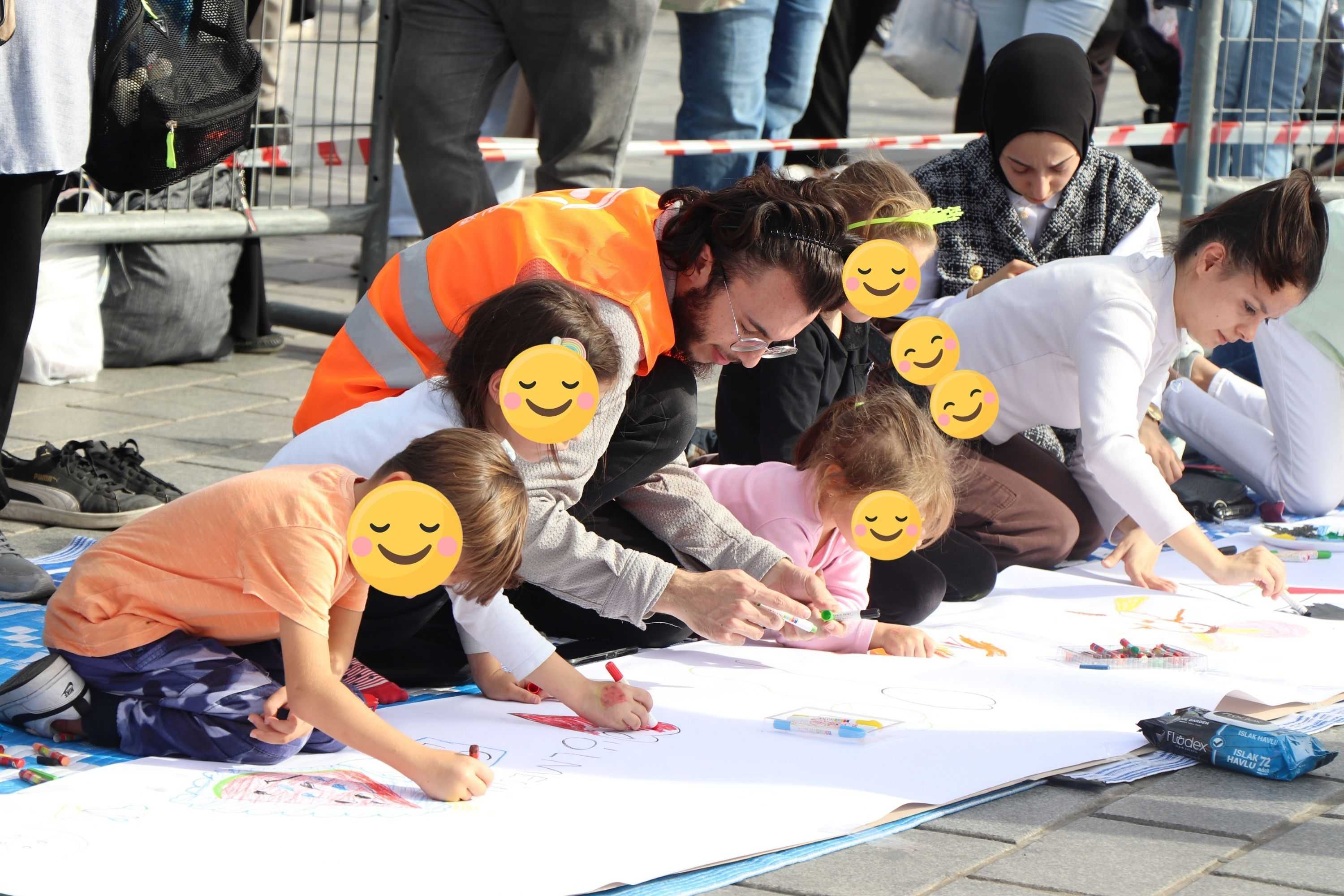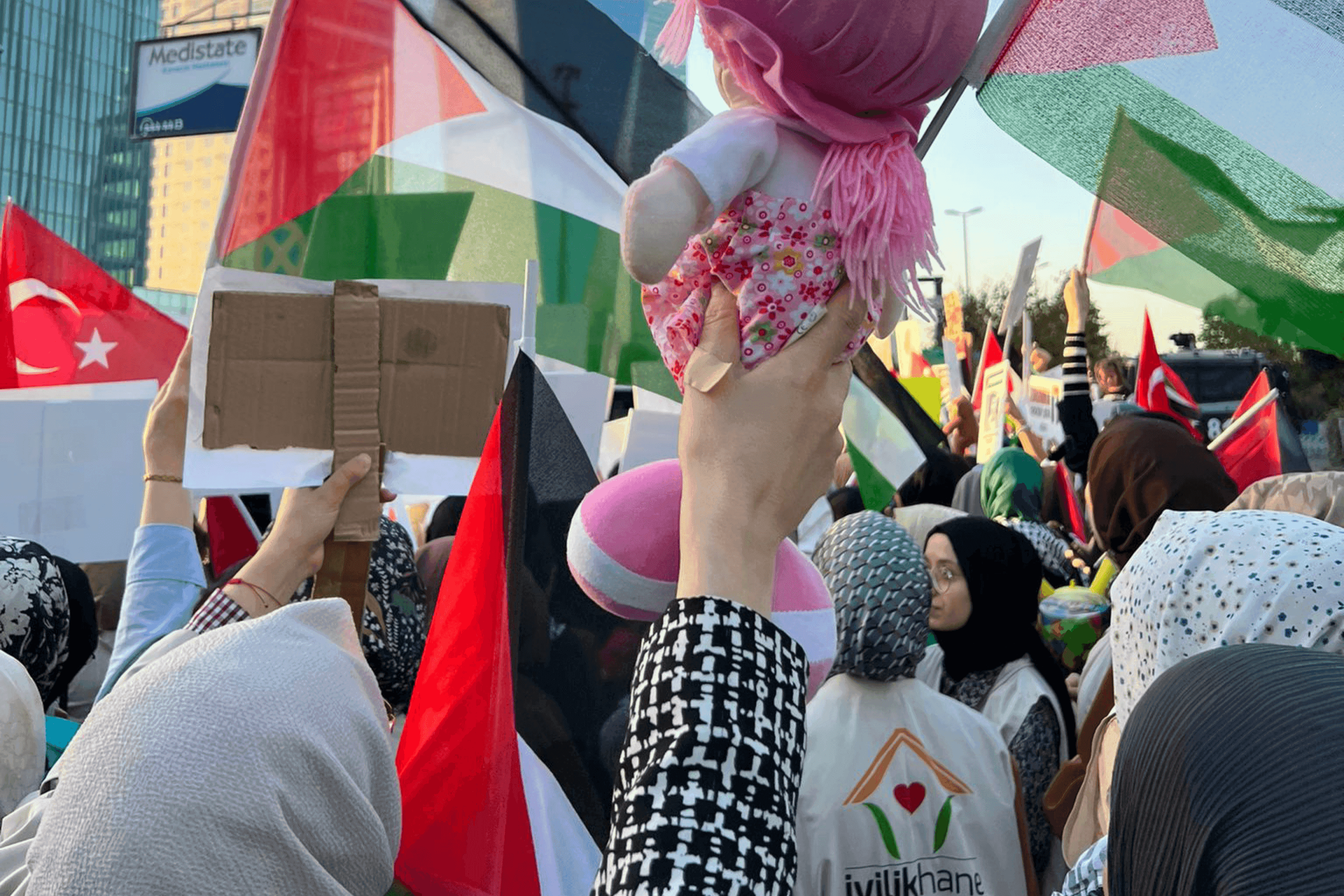The project was run for 3 months, rotating volunteers every 10 days. Prior to visiting the disaster area, we interviewed the volunteers from various backgrounds, such as undergraduates in their senior year and graduates from various departments, primarily education, social sciences, and mental health. We provided them with a training in topics that might be required in the earthquake zone.
In the tents set up for the activities, our volunteers worked with children to alleviate some of the negative effects of the earthquake and to strengthen them through the natural healing power of playing games, singing, and various therapeutic activities.
Post-disaster psychological support programmes have been shown to reduce the risk of developing Post Traumatic Stress Disorder. We conducted activities in separate programmes for children, adolescents, and adults to restructure the emotion regulation processes of those affected by the earthquake and to increase their psychological well-being by providing an environment for them to share their post-disaster thoughts and feelings.
Volunteer Training
Expert trainers provided volunteer training on the following topics to volunteers who will participate in psychosocial support activities in the earthquake zone. The training is also free and open to the public, allowing anyone to benefit from it.
Monday, February 27th
- 21.00: Psychological First Aid - Cli. Ps. Nazire Aysenur Yilmaz
Tuesday, February 28th
- 18.00: Coping with Social Disaster: Post Traumatic Progress - Prof. Dr. Bruce D. Perry
- 21.00: Psychologist Cihan elik on Post-Traumatic Symptoms in Special Children
Wednesday, March 1st
- 21.00: Emotion Regulation and Working with the Body - Dr. Fatih Usta
Thursday, March 2nd
- 19.00: Post-Traumatic Regulation in Children - Cli. Ps. Nazire Aysenur Yilmaz
- 21.00: Post-Traumatic Adolescent Emotion Regulation - Cli. Ps. Selcuk Tokac
Friday, March 3rd
- 19.00: Trauma with the ACT Framework - Ps. Esra Oras
- 21.00: Psychiatric Evaluation of the Disaster's Impact on Children - Dr. Cahid Orengul
Supervision
Supervision meetings were held under the supervision of a specialist psychologist to evaluate the difficulties encountered by volunteer workers in the activities to be carried out with a sensitive group of disaster-affected individuals in the earthquake zone, and to prevent volunteers from being psychologically affected by the regional conditions.
Our activities are constantly being updated to meet the needs of the region.
